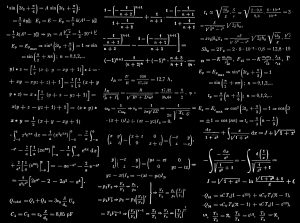The Scientific Principles Behind SIP Abacus Training

Do you often wonder why some children excel in mathematics while others struggle? Are you searching for effective ways to boost your child’s mathematical abilities and overall cognitive development? Look no further than SIP Abacus training. Rooted in scientific principles and backed by neuroscience and cognitive psychology, this innovative approach to learning mathematics can unlock your child’s high-level potential. In this article, we will explore the scientific foundations behind SIP Abacus training and how it can transform your child’s mathematical journey.
The Whole-Brain Activation
To understand the science behind SIP Abacus training, we need to delve into the concept of whole-brain activation. The abacus engages both hemispheres of the brain simultaneously. The left hemisphere handles logical processing, such as arithmetic calculations, while the right hemisphere manages visualization, like imagining bead movements. This integration of both sides of the brain improves neural connectivity and fosters essential skills such as problem-solving, creativity, and analytical thinking. By using an abacus, children develop a mental image of numbers that combines logic and visualization to solve complex mathematical problems.
Neuroplasticity and Cognitive Development
Neuroplasticity refers to the brain’s ability to change and adapt throughout life. SIP Abacus training leverages neuroplasticity to enhance cognitive development in children. Through repeated practice with the abacus, neural pathways associated with working memory, numerical fluency, and concentration are strengthened. Brain Gym exercises, incorporated into the training program, further stimulate neuron communication. The outcome is improved cognitive agility, memory retention, and faster information processing. As children learn to perform mental calculations practice effortlessly, their confidence and mathematical abilities soar.
Visual-Spatial Learning
One of the unique aspects of SIP Abacus training is its focus on visual-spatial learning. Children learn to visualize bead movements mentally and translate abstract numbers into tangible images. This mental imagery activates the occipital and parietal lobes of the brain, which are critical for spatial reasoning. By practicing mental arithmetic with the abacus, children develop a profound understanding of numbers and their relationships. This leads to improved mental math speed and accuracy, with reduced reliance on physical tools. Visual-spatial learning empowers children to tackle mathematical challenges with confidence and ease.
Kinesthetic Learning
SIP Abacus training incorporates kinesthetic learning, which involves tactile interaction and hands-on experiences. Manipulating the abacus beads stimulates sensory nerves in the fingers, sending signals to the brain’s somatosensory cortex. This tactile engagement strengthens motor skills and deepens conceptual understanding. As children physically interact with the abacus, they develop a kinesthetic connection between numbers and their physical representation. This hands-on approach enhances their learning experience and fosters a solid foundation in mathematical concepts.
Gamification and Dopamine-Driven Engagement
Gamification is an essential component of SIP Abacus training. By incorporating interactive games, puzzles, and timed challenges, children are engaged in a fun and stimulating learning environment. Gamified activities trigger the release of dopamine, a neurotransmitter associated with reward and pleasure. This reinforces motivation and enjoyment in learning, leading to higher retention rates and sustained interest in mathematics. SIP Abacus training makes learning a joyful experience for children, boosting their confidence, enthusiasm, and long-term engagement.
Scaffolded Learning
SIP Abacus training follows a scaffolded learning approach, which means the curriculum progresses from basic arithmetic to advanced mental math in a structured manner. This approach is aligned with Vygotsky’s Zone of Proximal Development, ensuring that children are always challenged at an appropriate level. By gradually mastering skills and concepts, children build a strong foundation for advanced mathematical abilities. The scaffolded learning approach prevents children from feeling overwhelmed and cultivates a growth mindset towards mathematics.
Personalized Instruction
SIP Abacus training offers personalized instruction through small class sizes and adaptive teaching strategies. With a focus on individual learning paces, children receive targeted support and guidance tailored to their needs. Formative assessments allow teachers to assess each child’s progress and provide timely feedback. This personalized instruction enhances academic performance as students advance at their own pace. Numerous studies have shown that children who complete SIP Abacus training perform significantly better in math and reading, often several years ahead of their peers.
Table: Scientific Principles vs. Cognitive Benefits
|
Scientific Principle |
Implementation in SIP Abacus |
Cognitive Benefits |
|---|---|---|
|
Whole-Brain Activation |
Abacus use + visualization techniques |
Enhanced problem-solving, creativity |
|
Neuroplasticity |
Brain Gym exercises + daily practice |
Improved memory, focus, and processing speed |
|
Visual-Spatial Learning |
Mental arithmetic drills |
Faster calculations, reduced math anxiety |
|
Kinesthetic Stimulation |
Physical bead manipulation |
Stronger motor skills, tactile learning |
|
Gamification |
Interactive games and competitions |
Increased motivation, engagement |
|
Scaffolded Curriculum |
Progressive modules (Junior to Grandmaster) |
Mastery of foundational to advanced concepts |
|
Personalized Feedback |
Regular assessments + adaptive teaching |
Targeted skill development, confidence building |
Summing Up
SIP Abacus training is a scientifically proven method to unlock your child’s mathematical potential and enhance cognitive development. By utilizing whole-brain activation, neuroplasticity, visual-spatial learning, kinesthetic learning, gamification, scaffolded learning, and personalized instruction, children develop strong mathematical abilities and critical cognitive skills. Studies have consistently shown that children who undergo SIP Abacus training outperform their peers in math and reading. With SIP Abacus’s world-class skill development programs, your child can gain a competitive edge, boost confidence, and excel in their academic journey. Explore SIP Abacus today and witness the remarkable transformation in your child’s mathematical abilities and overall cognitive development.



